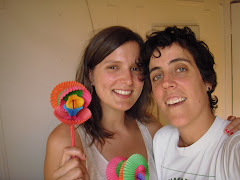So our booking secretary (a.k.a. ourselves) made a mistake and double-booked us Tuesday night. At 11 am we realized that we had two dinner meetings, one with a teacher who has been teaching in Beijing for 30 years with her old student and his friend, and the other meeting with a graduate student at the University of Geo-sciences and his friend, who was an undergraduate math major.
We decided the only solution was to divide... and research!
Ellie's report: I braved the subway on her own and traveled to the University area of Beijing. I met up with Pengliang, a twenty -four year old graduate student who was also in charge of student affairs and his friend, Songpu, who is a nineteen year old Math major. They took me for a tour of a campus, showing me the outside of the teachers' dorms and then the much nicer student dorms -- and then to a traditional Chinese restaurant where I tried everything! Pengliang is a friend of Isabelle's, the woman who runs the English language program in the rural village of Fengyang that we visited. The three of us spoke about the Chinese education system, Math, College, the one child policy, and the Olympics.
Pengliang grew up in a small village in the northeast of China, and has always been very driven to go to college and be successful. At some point, he realized that his life had been all study-study-study, and he had not "interacted with society" enough. He translated an old Chinese saying, "If you walk 1,000 miles, it is much better than reading 1,000 books." He then began working for a gap year organization on the weekends, where he helped British students explore China during their gap years. Now, as a grad student, he works as a dean for first year undergraduates, where he counse -ls students who are having a hard transition. I thought I would get the juicy dirt on Chinese college students- but quickly found out that -- in his opinion -- a hard transition meant that the 18 year old Freshmen were spending too much time playing video games at the Internet cafe and not enough time on their studies. Both young men were serious about school. Pengliang explained that his parents were farmers and they wanted him to have a different life -- one where he worked in an office and wasn't physically exhausted at the end of the day, one where he made more money and was able to better support his family. Songpu, who went to the Middle school that is on the same street as our hotel, explained that Chinese children have one task -- to study. "As a math major," he said, "my life is study, study, study. I study and go to bed at midnight, then I wake up at 5 and study." He said it was the same for his roommates. When I asked about the future of Education in China, they said they were optimistic that it was improving in a way that teachers were becoming better trained and more educated because now it is more common for people to go to university. Most of Pengliang's teachers had not gone to college, but now the teachers at that school have gone to teachers' college. The boys also spoke of Barack Obama with high esteem, but made a good observation- "Obama speaks about how far America has come in 100 years. What about China? We've been progressing for thousands!"
Aneal's report: I went to have traditional Beijing Snacks with Chris (the teacher) and her old student Will and his friend Annabel. Who knew that traditional Beijing Snacks include cow stomach? (Ellie really missed out on that one!) We had an amazing conversation about the education system in China. Everyone agreed that the Chinese education model was incredible to a certain extent, but lacks in helping students develop a sense of creativity. Their fundamentals are rock-solid, but everyone said that students have a hard time solving problems that are practical because many of them are solving problems without really knowing why they are solving them the way they are solving them. I told them that my students lack a lot in terms of basic skills, but not in terms of creativity. We decided that if we could some how merge the intense cultural expectation and non-stop practice of the Chinese education system with the creativity and discovery model of the American education system that we would have some really incredible thinkers and problem solvers in this world. Now we just need to figure out how to do that....

No comments:
Post a Comment